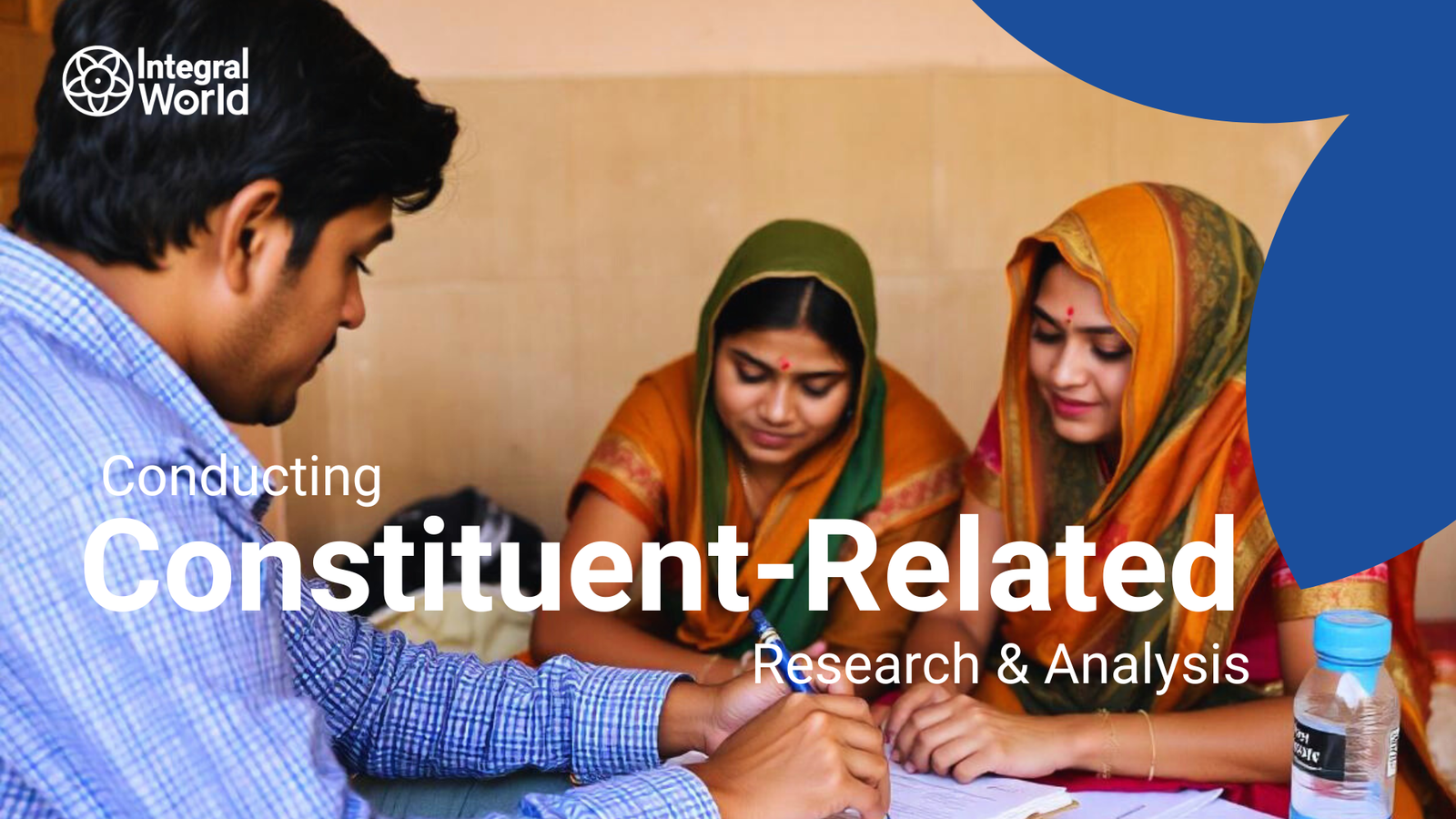For effective initiatives in sustainable and holistic development, deep understanding of the communities and constituents is necessary. Constituent-related research and analysis are important for driving positive global impact and achieving development goals at Integral World, a non-profit organisation aimed at promoting sustainable and holistic development.
This article will discuss how organisations can be steered towards these objectives through clear vision as well as strategic change supported by insights from scholars and thought-leaders, concrete examples, and actionable tips.
The Importance of Research on Constituents
Nonprofits collect data about the people and communities they serve while conducting constituent related research. Through this process, valuable knowledge regarding their needs, preferences, challenges as well as aspirations is obtained.
When done properly it informs strategic planning, program design and resource allocation ensuring that plans are relevant to the context and therefore impactful.
Key Benefits
Informed Decision-Making: Organisations should make decisions based on data including specific needs or dynamics of their target populations so that they improve program relevance as well as efficiency.
Increased Stakeholder Engagement: Engaging the community in research promotes ownership among them; it implies that even common citizens have a voice.
Enhanced Program Design: Organisations can develop programs addressing practical aspects informed by constituent inputs leading to better results with recipients’ satisfaction.
Resource Optimization: How nonprofits use resources efficiently is crucial. In order to identify areas where there is high demand for funds, research helps identify priority areas.

Concrete Examples and Case Studies
Example 1: Rural Education Programs
A non-profit organisation dedicated to improving education in rural areas that are underserved conducted thorough research to identify the specific challenges faced by local schools. They found out through extensive interviews with teachers, parents and students that there were inadequate learning materials and poor school infrastructure. Based on this information, they provided educational resources, upgraded classroom facilities and organised teacher training workshops among other things as a way of addressing these issues. Targeted research led to increased student enrollment and improved academic performance, demonstrating its effectiveness in addressing educational needs.
Example 2: Urban Environmental Projects
An environmental NGO focusing on urban areas used research methods to identify pollution sources and the main environmental concerns in a particular locality. Public surveys as well as forums helped them find out more about such things as industrial waste and vehicle emissions. Accordingly, it initiated pollution control measures such as community clean-up events and awareness campaigns. Consequently, this resulted in better air quality & more environmentally aware communities.
Steps to Conduct Effective Constituent-Related Research
Conducting thorough and effective constituent-related research involves several key steps. Here is a step-by-step guide for NGOs and other organisations:
Step 1: Define Research Objectives Clearly define what you hope will come from this study. What specific information are you seeking? How is this information useful for your programs or strategies? A clear purpose helps guide the research process, making it actionable.
Step 2: Choose Appropriate Research Methods Select research methods that match your objectives and context best. Examples include surveys, interviews, focus groups or observation studies. To have a fuller understanding of an issue, mixed methods which combine both approaches can be used.
Step 3: Engage the Community Involve local people in your research process like designing the study, collecting data, analysing finds among others. This would mean that when carried out on-the-ground its findings become more relatable thus becoming more credible therefore be acceptable.
Step 4: Collect and Analyze Data Gather data systematically following ethical considerations. Tools used should guarantee accuracy and dependability of collected data.. Thereafter, analyse data so as to identify patterns/trends/key insights thereby giving a rigorous analysis reflective of the community’s context.
Step 5: Share Findings And Take Action Let stakeholders like community members learn about the facts obtained through such a survey; donors and partners. Utilise this experience, and direct the strategic planning, program design as well as resource allocation for better results. Implement the actions recommended then have subsequent monitoring and evaluation of their impact.

Practical Strategies for NGOs
Taking into consideration the insights and practical examples given above, here are some practical strategies for NGOs that would assist them improve their constituent related research and analysis:
Build Local Partnerships Partner with other local organisations, community leaders and academic institutions. The partnerships will provide valuable skills in a wider range of fields including being able to engage communities more effectively as well as make your research more credible.
Use Technology In order to obtain data correctly, use technology effectively. Mobile surveys online platforms or data analytics tools can facilitate ease of conducting research saving on time thus giving reliable outcomes.
Ensure Cultural Sensitivity: Bear in mind cultural norms when designing or implementing research programs. This should involve using appropriate language, respecting local customs among others so that you avoid power dynamics.
Foster transparency by clearly communicating your intentions at every stage of the research process, from setting goals to sharing your methodology and findings. Make the entire process open to those affected or interested, such as the broader society.
Continuously Evaluate And Adapt Research is not a one-off activity but rather a continuous one where you keep evolving according to new learnings. Continuous evaluation leads to iterative nature leading to sustainability of such programs since they remain relevant until the end
Conclusion
For non-profit organisations to achieve sustainable and all-inclusive development, there is a need for constituency related research and analysis. It provides insight into communities, enabling informed decisions, effective program development, and resource optimization for better outcomes. Integral World is dedicated to aiding non-profits realise their objectives of development using strategic and thoughtful research.
Is your organisation prepared to extend its influence by undertaking inclusive constituent based research? To receive our assistance and have access to our expertise in this area, partner with Integral World. By coming together we can foster sustained growth that will positively impact globally. For more information about our services as well as case studies, checkout our website.


2 Comments
I just could not leave your web site before suggesting that I really enjoyed the standard information a person supply to your visitors Is gonna be again steadily in order to check up on new posts
What a material of un-ambiguity and prreserveness of valuable familiarity
on the topic of unpredicted emotions. https://Evolution.Org.ua/
Comments are closed for this article!